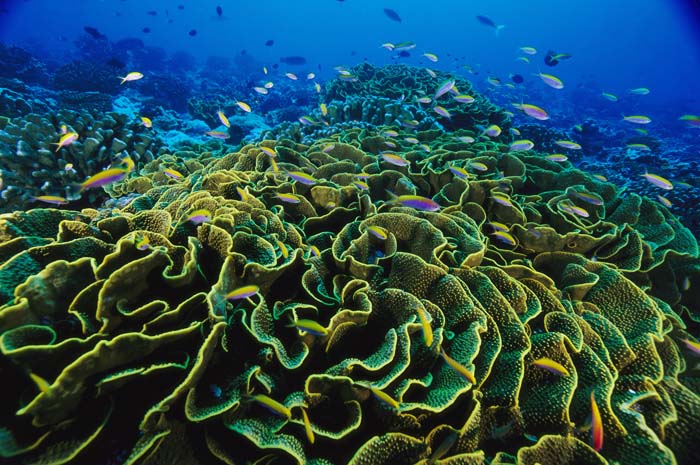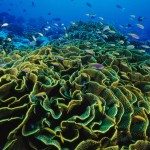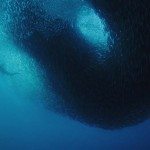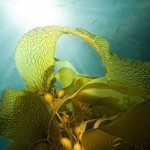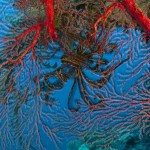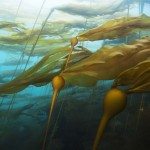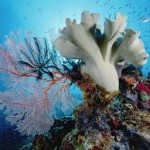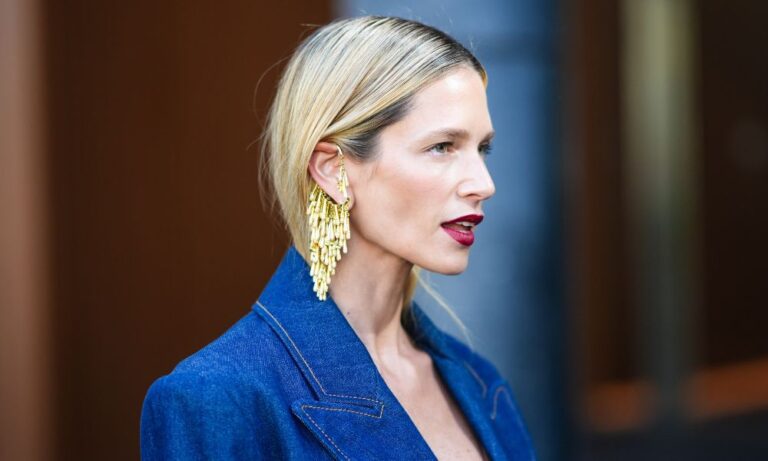Iwas an encounter that might have left others determined to keep their feet planted firmly on dry land. But it began Dr Sylvia Earle’s love affair with the ocean. “As a child, I was knocked over by a wave on the beach in New Jersey,” says the oceanographer and National Geographic explorer-in-residence. “After I realised that I could still breathe, I was exhilarated and jumped right back in. Since then, the ocean and the life that it holds has not only captured my imagination, but has held it for my entire life.”
At the age of 80 and with more than 7000 hours logged underwater, Earle, who is often referred to by the nickname “Her Deepness,” is still exhilarated by the potential of the ocean. “Every time I go into the ocean, I make new discoveries and often find myself in the presence of something that has not yet been recorded by humans. It’s not so difficult to do because only about five per cent of the ocean has been seen, let alone explored.”
To put the five per cent that Earle mentions into perspective, marine biologists predict that, while the number of discovered marine species sits in the hundreds of thousands, it’s plausible that millions of species are yet to be found. However, for the ocean’s uncharted territory to continue to thrive and inspire Earle and generations of marine biologists sure to follow in her wake, she believes we need to stop treating the ocean as a giant dumping ground or an endless source of food. “Over the years, I’ve come to understand that everything on Earth is connected, and the ocean is really what unites all life. We know the ocean governs climate and weather and it shapes the chemistry of the Earth itself,” Earle explains. “Most importantly, we’ve discovered that the ocean is the blue heart of the planet. Without the ocean, there would be no life.”
To encourage us all to pause and reflect on the extraordinary role the ocean plays in our lives and the impact that we have on it, National Geographic and Earle have teamed with luxury beauty house La Mer. “The ocean is an integral part of La Mer’s heritage,” explains Sandra Main, La Mer’s global brand president. La Mer’s founder Dr Max Huber was so inspired by the regenerative power of the sea that he sought to unlock the potential of sea kelp in the brand’s legendary Miracle Broth, which remains at the heart of all La Mer products today.
While La Mer see the ocean as a world of opportunities and properties waiting to be discovered, its global philanthropic effort, Blue Heart, is dedicated to protecting ocean habitats for generations to come. By partnering with National Geographic, La Mer has been able to help support the Society’s next generation of ocean explorers, who are making a tangible impact. Through a partnership with non-profit organisation Oceana, it is able to help protect more than 42 million km2 of marine habitats. “We hope to educate consumers and employees on how essential healthy oceans are to our lives, reminding us all that we can do our part to help protect the blue heart of our planet, the ocean,” says Main. Earle is optimistic that the change she wants to see in our attitude towards the ocean is already starting to happen. “More and more people are realising that taking care of the natural world means we’re securing a future for ourselves,” she says. “We need a healthy ocean and a world that works in our favour.”


